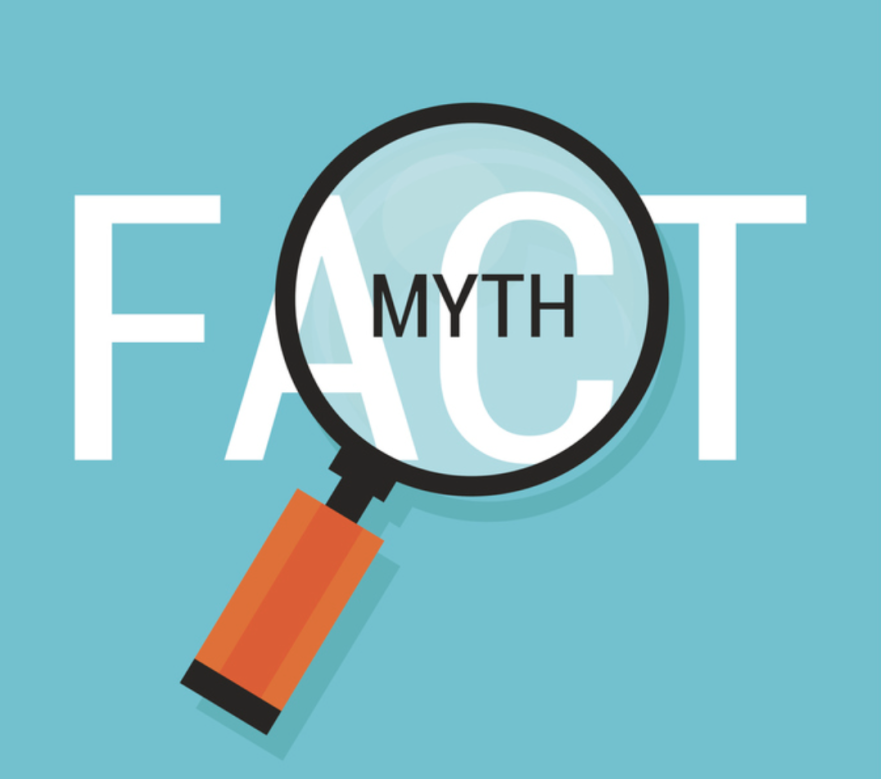July 7, 2022
Shawn Lane
Consumer Credit Expert
Credit cards have long been one of the most controversial topics in personal finance. For every piece of rational, constructive advice you can find on the internet, you’re just as likely to find 10 examples of misguided information or fear-mongering nonsense.
Thankfully, it’s not that difficult to clear up fact from fiction. Let’s dispel some of the most pervasive credit card myths with a little common sense, industry knowledge and critical thinking.
Myth #1: You need to carry a balance to improve your credit
Many consumers believe they must keep a balance on their credit cards to build good credit. But this really isn’t true.
Most of the misinformation I see and hear states that keeping your credit card utilization below 30% will result in the highest credit scores. Although 30% utilization is a great goal, you will actually score higher with 20% utilization, and even higher with 10% utilization.
According to the real credit experts, you will score highest if you keep your credit card balances between 1% and 6% of your credit card limits. You will score slightly lower if your utilization is 0%. But notice I said “slightly lower”.
Does this mean we should carry credit card balances? No, not if you can avoid it! It is still the best practice to pay your credit card balances in full each month to avoid paying interest and maximize your credit scores.
However, if you are planning your next major purchase and you need a few more credit score points, trying leaving a small balance on at least one of your credit cards (between 1% and 6% of the credit limit) and you will find your score will be a little bit higher than if you had a zero balance.
Myth #2: Closing credit cards can improve your credit score
Some consumers think that closing credit card accounts can improve their credit. But when you close a credit card, your credit score may actually decrease because of two main factors:
- When you close a credit card, your revolving credit utilization will increase. This happens because you lose the available credit limit from the utilization calculation (balance to credit limit ratio) which makes up 30% of your credit score.
- Closing a credit card can also impact your mix of credit calculation which makes up 10% of your credit score, because you will have one less open account on your credit report contributing to this category.
You can still close old credit card accounts, especially credit cards that charge high annual fees or don’t reward you appropriately in points or miles. Just make sure you understand how losing the credit limit will impact your utilization %, and be aware that your score may decrease.
Myth #3: Having multiple credit cards hurts your credit
Some borrowers believe that having several different credit cards reflects poorly on their credit score. And while each new card you open will result in a hard inquiry on your credit report, it’s not necessarily a bad thing to have multiple credit cards. Just make sure you don’t have more credit cards than you can handle, and don’t apply for more than one or two credit cards each year. Although each new credit card account will contribute positively to your mix of credit, each new credit card will also come with one or more hard inquiries which will hurt your credit score, and each new credit card account will decrease the average age of your credit.
If you pay your credit card bills on time and keep the utilization percentage below 10%, then those cards can help you build a good credit score.
Try to avoid opening new cards right before taking out a loan, as it may temporarily lower your credit score.
Myth #4: Late payments automatically decrease your credit score
Your payment history has the biggest impact on your credit score, but that doesn’t mean all late payments will hurt your credit score. Your payment must be 30 days late or more to go on your credit report.
If your late payment is less than 30 days, it will not appear on your credit report and it will not change your credit score. You should still try to avoid late payments because you may be charged a late fee or the interest rate on a credit card may increase.
Setting up automatic payments can help you avoid late payments. You can also set calendar reminders in your phone or you can sign up for official reminders from the card provider.
The Bottom Line
Improving your credit can seem complicated, but it’s actually quite easy. If you pay your bills on time, keep your utilization low and avoid opening too many new accounts. In due time, your credit score should take care of itself.
If you have any questions or need help improving your credit, schedule a free credit analysis with a Financial Renovation Solutions credit consultant today.
Shawn Lane
Consumer Credit Expert

